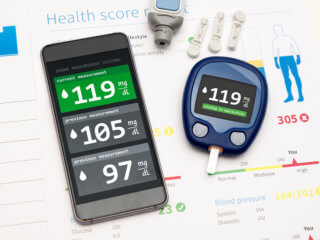- The emergence of digital health revolution has shown to reduce the cost of health care and to increase efficiency through better retention and retrieval of records, better management of chronic diseases and secure exchange of health care data.
- Many countries have worked in the direction of reducing hospital beds to promote the use of digital devices in health care industry.
- Flanders, Estonia, and Netherlands are the epitome of countries exploiting technology advancements to reduce health care costs and provide better health care services through electronic medical records, ePrescription, and personalized medications.
Innovate ways to tackle the challenges in health care industry in Flanders
The governments of North Rhine-Westphalia and Flanders have joined hands to strengthen bilateral ties to achieve mutual objectives of prosperity and welfare of their citizens.
There are numerous societal and demographic challenges plaguing the health care sector.The lower number of people contribute to the social security system of the country, while the number of people needing health care is increasing day by day. In the recent years, society has been aging fast which has led to improvements in the cost of health care.
Medical and technological advancements in Flanders have led to increases in life expectancy by three months with each passing year. But, a lot of changes are required to make the health care system better for the patients. High interaction with users to better understand their needs and expectations, adopting cutting-edge inventions in the medical domain and exploiting corporate social responsibility can help governments tackle challenges plaguing health care sector.
The government of Flanders has partnered with various stakeholders to promote cutting edge research, innovation, and entrepreneurship. It has given high importance to the exchange of data and tailor-made health care. Vitalink, a product developed by the Flemish government, enables to share medical data efficiently. It allows doctors, nurses and other caretakers to access accurate and updated health data with utmost privacy. Integration of digital solutions in health care which should be regulated and legally ethical.
Assistive technology, integrated chronic care, elderly care and care for disabled along with mHealth and eHealth will lead to a digital health revolution in the coming years.
| Recommended for you | |
| Medical implementation of blockchain technology in Estonia | |
| 95 Key people in digital health Europe, 2016 | |
| 50 Venture capital firms in Europe to finance your digital health startup |
Estonia setting new standards for eHealth
Estonia with a population of 1.325 million has created one of the most successful systems of its kind in the world, offering its people streamlined, online access to services in health care. 95% of data by hospitals and family doctors is stored digitally in Estonia. The country has adopted the system of ePrescription, with 99% of the prescriptions being digital.
Secure data exchange has been the cornerstone of Estonian health care infrastructure. Health care providers are given access to the data stored by the patients and patients have the opportunity to access the health care related information. Secure systems have been implemented using robust authentication methods like Public Key Infrastructure (PKI).
An efficient and optimized solution for as many people as possible won’t be of any use in the future. There needs to be a paradigm shift to personalized medicine to help each as precisely and efficiently as possible.
Estonia has designed medical and health service encounters which contain all the treatment and health information about patients. This data is used to train new clinical decision support algorithms, and they have used again in individualized medication.
After the launch of health information system, the patients can get to know about their appointments, take advice for visits, have a look at their health performance and analyze trends.
Better health care through digital records in Netherlands
Netherlands boasts of having the most digitally advanced health care system with 98% of the GPs using only digital files. Electronic document management for health care has led to high quality of care, increased safety of patients and reduced administrative burden on the staff. It aims to provide them digital access to their health data, communication through telephones and round the clock screen interface.
Users measure only their physical activity using mobile apps rather than using them to gain access to other medical information. Apart from technological advancements, social innovation is also required as people aren’t aware of many digital health services.
A lot of countries have achieved resounding success in implementing health information exchange centers. It is the high time that other governments and industry leaders understand the importance of using digital technology to provide health care. eHealth will ensure in giving quality health care to the patients and keep the health care costs at the same time.
| Technologies | Challenges |
|---|---|
| Assistive technology, clinical decision support algorithms, PKI authentication. | Societal challenges like aging population in Flanders, lower number of people contributing to social security, increasing health care costs. |
Moderator:
Dr. Stephan Schug, ZTG ZentrumfürTelematik und Telemedizin GmbH
Speakers:
Jo Vandeurzen, Minister Welzijn, Volksgezondheid en Gezin Vlaanderen
Ain Aaviksoo, Deputy Secretary General for E-Services and Innovation (CIIO), Ministry of Social Affairs – Republic of Estonia
Lies van Gennip, CEO, NICTIZ – National IT Institute for Healthcare in the Netherlands
Video URL: https://www.youtube.com/watch?v=HDTAf1-VxlE&feature=youtu.be
Upload Date: 27th November 2016
Video code: 16R103
Vitalink, a digital platform to share patient data in Flanders
Image credit: www.istockphoto.com

















